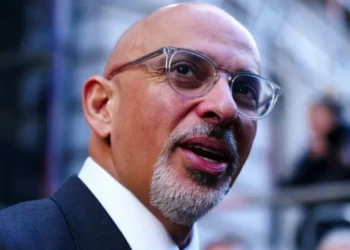Prime Minister Keir Starmer is bringing a heavyweight figure into his economic team, with Nemat Minouche Shafik, the former deputy governor of the Bank of England, set to become his chief economic adviser. The move comes as the prime minister seeks to bolster confidence ahead of the autumn budget, which is expected to be one of the most testing of his government.
Shafik, a member of the House of Lords, has spent the past year leading a Foreign Office review into the government’s overseas aid spending. She previously served as president of Columbia University in New York but resigned last year after criticism over how Jewish students were treated during anti-Israel protests on campus.
Her career has spanned some of the most influential financial and academic institutions in the world. She has been director of the London School of Economics, a deputy managing director at the International Monetary Fund, and the most senior civil servant at the UK’s Foreign Office. In 2019, she was even tipped as a potential candidate to succeed Mark Carney as governor of the Bank of England.
Bringing Shafik into Downing Street is widely seen as a response to criticisms that the prime minister’s office has lacked strong economic decision-making capacity. Some advisers within No. 10 have expressed frustration that missteps have been made due to what they describe as naivety in the Treasury.

Chancellor Rachel Reeves has herself faced political challenges in recent months. She was forced into an embarrassing retreat after backbench MPs rebelled against her proposal to cut disability benefits. That climbdown has added to the pressure on Reeves as she prepares for her autumn budget, where she will need to outline plans to close a fiscal gap estimated between £20bn and £40bn.
Pressure Builds Ahead Of Autumn Budget
Starmer has made it clear he wants top-level advice that is not filtered through the Treasury. This mirrors tensions seen in previous administrations. Sajid Javid, for example, quit as chancellor when then prime minister Boris Johnson insisted that all Treasury decisions had to be signed off by Downing Street.
Although Westminster rumours have circulated suggesting Reeves’ position could come under threat if her budget falters, it is understood she is not expected to resign over Shafik’s arrival. Still, the chancellor is also looking to add heavyweight advisers to her own team after the departure of leading academics such as John Van Reenen and Anna Volero.
Shafik’s appointment is unlikely to pass without criticism. Some figures inside No. 10 had hoped for a candidate with more direct experience of the domestic economy. Shafik, who spent much of her early life in Egypt before moving to the United States, has built her reputation around international institutions focused on poverty reduction and global development.
Her defenders argue that she is more than qualified, pointing to her two-and-a-half years on the Bank of England’s rate-setting committee and six years running the London School of Economics as proof of her grasp of the UK’s economic challenges.
Adding to the debate over economic policy, Allan Leighton, the chairman of Asda, urged Reeves to resist piling new taxes onto households and businesses.
“All these things don’t make life easier. They are contributing to inflation, and inflation is hitting the pocket of the consumer.”
Allan Leighton

Among the measures reportedly under consideration for the budget is a so-called “mansion tax.” This policy would see owners of high-value properties pay capital gains tax on the profits when they sell their homes. The Treasury is also expected to extend the freeze on income tax thresholds, a measure that gradually pushes more earners into higher tax bands as wages rise with inflation.
The Asda chairman’s warning comes as new figures show food prices rising at their fastest pace in a year and a half. With household budgets already squeezed, the political stakes of Reeves’ autumn budget have rarely been higher. For Starmer, bringing Shafik into the fold represents both a strengthening of his inner circle and an acknowledgment that economic credibility will be key to the government’s survival.
READ ALSO: NPA Deepens Energy Ties with Burkina Faso to Boost Regional Security























